
A RESOURCE FOR FAMILIES CONSIDERING RESIDENTIAL TREATMENT PROGRAMS FOR THEIR CHILDREN
A RESOURCE FOR FAMILIES CONSIDERING RESIDENTIAL TREATMENT PROGRAMS FOR THEIR CHILDREN If you care for a child with a serious mental illness, you are not alone. According to the Surgeon General, 1 in 5 American children and adolescents live with mental illnesses and nearly 5 million suffer from a serious mental disorder that significantly interferes with daily functioning. Caring for a child with a mental illness can be overwhelming and often strains marriages and family relationships. Children with serious mental illnesses may struggle in school, threaten violence to themselves or others, or get caught in the juvenile justice or criminal justice systems. Meanwhile caregivers often experience frustration, guilt, or anxiety as they struggle to find help for their child. Although most children with mental illnesses respond to standard treatments, some children with more serious mental illnesses continue to struggle. If you are a caregiver who has utterly exhausted community mental health care resources, you may be considering sending your child to a residential treatment center. In the US, private residential treatment facilities for youth serve 10,000 to 14,000 children and adolescents. Many residential programs are not subject to any state licensing or monitoring as mental health facilities. While some residential programs offer nurturing and caring environments and use evidence-based interventions, others are highly dangerous and damaging. The most concerning programs are those that operate under the philosophy that young people must be broken before they can be helped. These programs use disciplinary techniques such as degrading confrontation, deprivation of basic physical needs, and alienation from family. These abusive methods can confer permanent psychological damage and divide the young person from his or her family. Residential treatment is an extreme measure that should only be taken if local resources have proven inadequate. Conscientious residential programs that use proven interventions such as evidence-based psychotherapy, drug and alcohol counseling, parent support and education, and social-skills training can strengthen families and help facilitate live-saving changes. The time spent in a residential program should be as short as possible, with the goal of returning the child to his or her family and community with the least amount of stress and disruption possible. The following five lists of suggestions and information have been compiled from various sources to help you make an informed decision about sending your child to residential treatment. 1. Action Steps 2. Licensing and Accreditation Checklist 1 3. What to Consider 4. Rights of Youth and Families to Prevent Abuse and Neglect 5. Links to Additional Information 2 ACTION STEPS 9 Take your time. Resist pressure to make an immediate decision. Residential treatment should not be used in place of local emergency resources in the event that your child is in immediate danger. Beware of programs that push you to “act now” to prevent serious harm. 9 Seek an objective, professional opinion before committing to a program. 9 Ask about pre-admission assessments and admission criteria to determine whether your child qualifies. 9 Request an individualized plan for your child that details the therapies, interventions, and supports that will address your child’s specific needs as well as the transition from treatment back to community-based care. 9 If possible, visit the residential program and take a tour of the facilities before making a decision. 9 Interview staff members. 9 Talk to young people currently in the program. 9 Talk to past students and their families. 9 Verify the program’s licensing and accreditation claims. 9 Verify the credentials of the clinical director and staff. 9 Check with the board of education in the state where the program operates to be sure that the educational program is licensed in that state. 9 Contact the state education board in your state to verify that academic credits will transfer. 9 Obtain copies of publicly available information about the residential program, including complaints or actions filed against the residential program, site visit evaluations, violations, and corrective actions. 9 Ask about the program’s philosophy on medications. Programs should neither overmedicate to sedate or have an anti-medication philosophy, especially if your child is currently relying on medications to cope with their diagnosed disorder. 3 LICENSING AND ACCREDITATION CHECKLIST Program is accredited through an independent organization, such as the following: ▪ Joint Commission on the Accreditation of the Healthcare Organizations (JCAHO) ▪ Council on Accreditation (COA) ▪ Commission on Accreditation of Rehabilitation Facilities (CARF) Accreditation covers all components of the program: the base program, the drug and alcohol component, the wilderness program, etc. Program is licensed through the State Department of Health and Human Services or its equivalent. License covers the educational, mental/behavioral health, and residential components of the program. Program has full-time licensed therapists and medical professionals on staff to serve youth with specific psychiatric diagnoses. All claims can be verified with the appropriate licensing or accreditation office. Program performs background checks on all of its staff members. Staff is certified in CPR and other emergency medical procedures. Academic teachers are licensed and certified with degrees from accredited colleges. 4 WHAT TO CONSIDER Which staff members will be working with your child and what is the experience that qualifies them? What are the program’s disciplinary policies and procedures? How will the program respond to specific behaviors exhibited by your child? How much written and verbal contact do they allow between caregivers and their child? Do caregivers have open access to the facility? How does the program define and measure outcomes and success? What academic curriculum does the program use? What is the ratio of students to teachers? Does the program offer classroom learning or independent study? Are academics ongoing or only offered when the young person reaches a certain point in the recovery process? Have there been any reports of unsanitary or unsafe living conditions, nutritionally compromised diets, exposure to extreme environmental conditions or extreme physical exertion, inadequate staff supervision, medical neglect, physical or sexual abuse of youth, or any violations of youth or family rights? What relationship exists between the residential program and agencies or individuals that have referred the family to the program? What is the average length of stay for youth in the program? How does the program prepare youth to return to their home and community? Does the program provide necessary referrals or connections for after release from the program, including assisted housing, supported employment, vocational rehabilitation, life skills training, and others? 5 RIGHTS OF YOUTH AND FAMILIES TO PREVENT ABUSE AND NEGLECT 9 Youth should have reasonable access to a telephone to make uncensored calls. 9 Youth and caregivers should always be provided with hotlines to call at any time if they feel that their rights are being violated or they are being mistreated. 9 Caregivers should always be notified if their child is sick or injured. 9 Caregivers should always be notified within 24 hours about medication changes and missed dosages. 9 Caregivers should always be notified within 48 hours of any on-site investigations or reports of child abuse and neglect, violation of health and safety standards, or violations of state licensing standards. [ Youth should never be subject to abusive disciplinary methods, such as seclusion, restraint, corporal punishment, fear tactics, humiliation, forced labor, medicinal sedation, or the withholding of food, water, clothing, shelter, or medical care. [ Caregivers should never be approached with funding incentives to relinquish custody of their child. 6 LINKS TO ADDITIONAL INFORMATION Accrediting Agencies 1. Joint Commission on Accreditation of Healthcare Organizations (JCAHO) 2. Council On Accreditation (COA) 3. Commission on Accreditation of Rehabilitation Facilities (CARF) Other Links Federal Trade Commission Facts for Consumers: Considering a Private Residential Treatment Program for a Troubled Teen? The Alliance for the Safe, Therapeutic and Appropriate use of Residential Treatment (A START) SAMHSA’s Building Bridges: Mental Health Consumers and Primary Health Care Representatives in Dialogue Community Alliance for the Ethical Treatment of Youth NAMI 2107 Wilson Blvd., Suite 300 Arlington, VA 2201 (800) 950-NAMI (6264) www.nami.org 7
© Copyright 2025
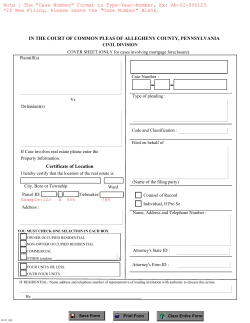
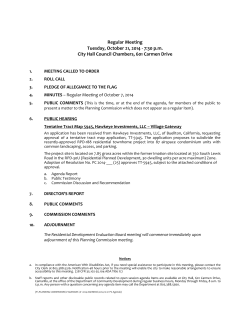
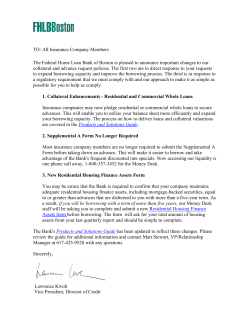
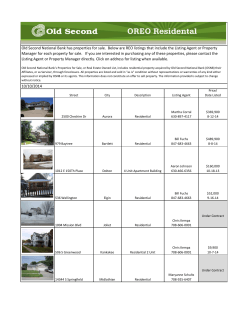
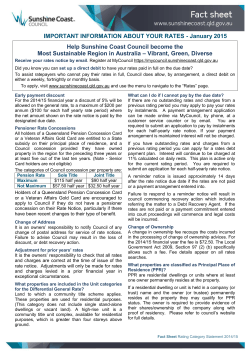
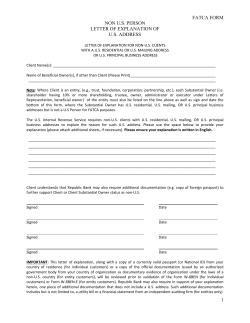

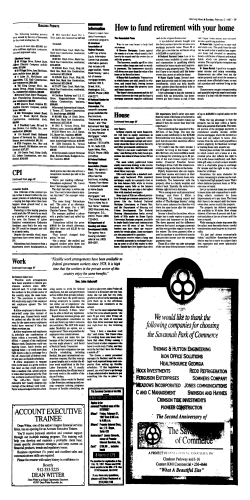
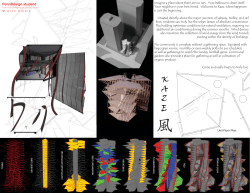



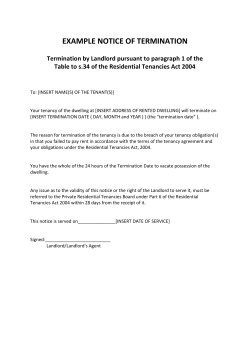

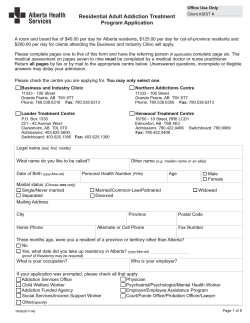





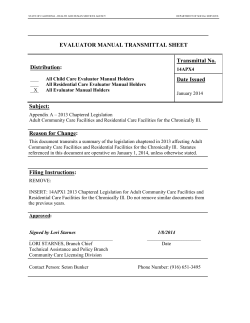
![APPENDIX 5: Annotated chapters and planning maps [240]](http://cdn1.abcdocz.com/store/data/000205687_1-ef6ae2ef0cbd0dfd29cc780284a0e29f-250x500.png)